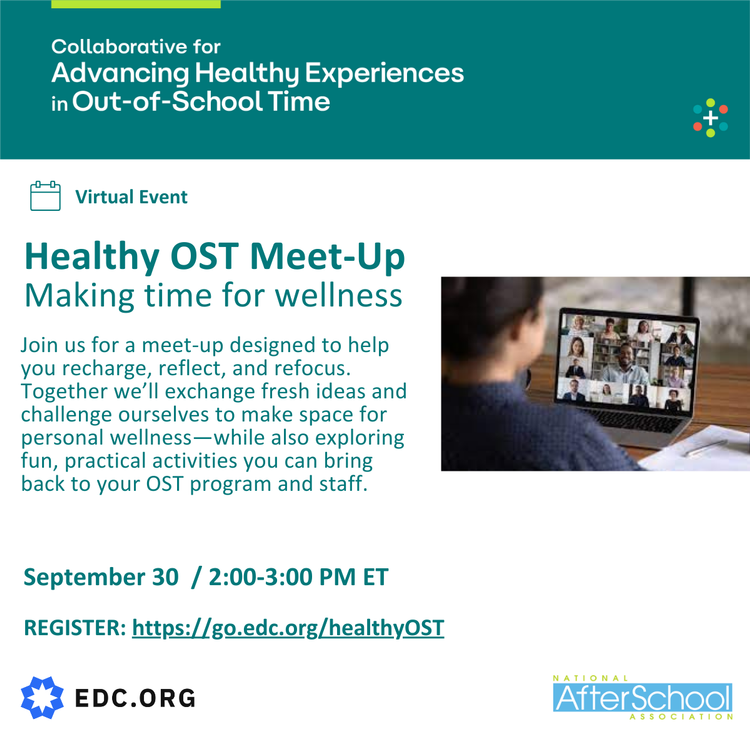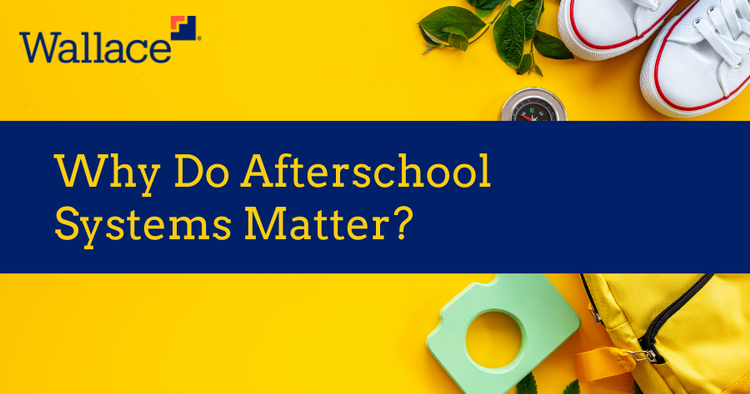NAA Fall Highlights To not miss!

On September 30 from 2:00 to 3:00 p.m. Eastern, the Collaborative for Advancing Healthy Experiences in OST (CAHE-OST) will host a meet-up for out-of-school time professionals interested in promoting wellness for themselves, their colleagues, and the young people and families served by their programs.
Join OST professionals for an energizing virtual meet-up designed to help you recharge, reflect, and refocus. Together, we’ll exchange fresh ideas and challenge ourselves to make space for personal wellness – while also exploring fun, practical activities you can bring back to your OST program and staff.
This time together is designed to spark inspiration and equip you with a growing “wellness toolbox” full of short, simple strategies you can use both in your own life and in your work with young people.
Why Do Afterschool Systems Matter?

Now more than ever, we recognize how crucial it is to advocate for the unique value and impact of OST) organizations and coordinated systems. Years of research show that afterschool programs increase school attendance, improve grades, and help young people develop essential life skills like communication, teamwork, and problem solving. According to a recent Afterschool Alliance survey, 92% of parents agree these programs provide vital opportunities to build life skills, and 74% say afterschool makes children more excited about learning and engaged in school.
However, as we know, many young people from lower-income families still lack access to quality programs. To address this gap, cities across the country are building coordinated afterschool systems. These systems bring together public agencies, private funders, businesses, schools, and program providers to share resources and create high-quality, engaging opportunities for youth.
The Wallace Foundation identifies four key elements that make afterschool systems successful:
– Committed leadership from mayors, school superintendents, families, and community stakeholders
– An established coordinating entity such as a public agency or nonprofit intermediary
– Effective use of data to inform decisions and improve programming
– A clear focus on program quality with shared standards and supports
By investing in these elements, cities can build sustainable afterschool systems that maximize the positive impact and return on investment for young people and their communities — and demonstrate their value.
Read the full Wallace Foundation article here: Why Do Afterschool Systems Matter? [https://wallacefoundation.org/resource/article/why-do-afterschool-systems-matter]